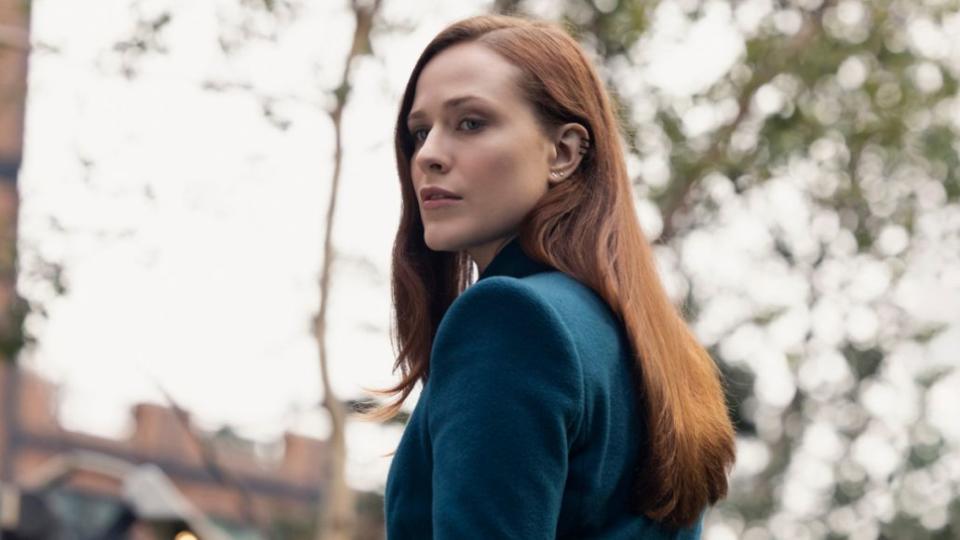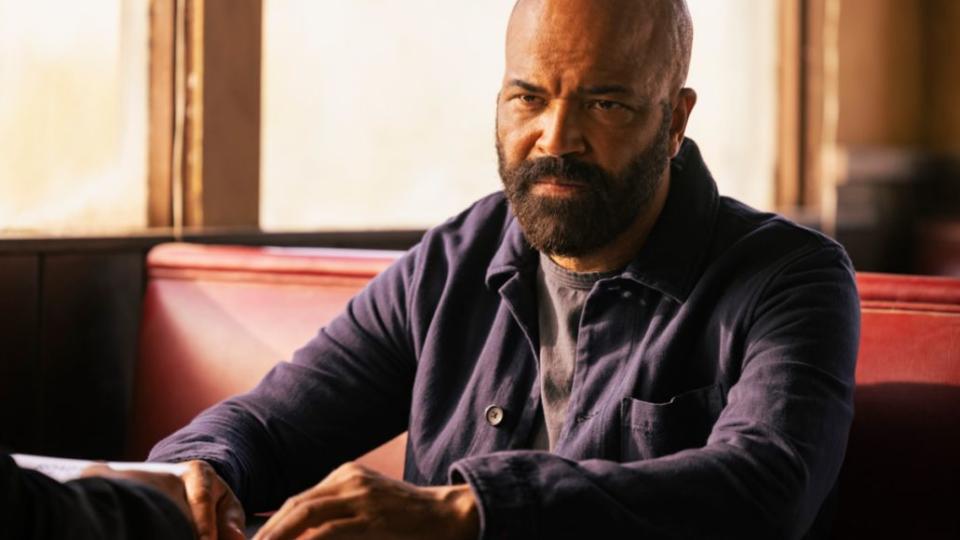Why Yes, the Westworld Cast Has Concerns About Data Privacy After Working on Season 4
- Oops!Something went wrong.Please try again later.
- Oops!Something went wrong.Please try again later.
- Oops!Something went wrong.Please try again later.
- Oops!Something went wrong.Please try again later.
- Oops!Something went wrong.Please try again later.
The post Why Yes, the Westworld Cast Has Concerns About Data Privacy After Working on Season 4 appeared first on Consequence.
HBO’s Westworld is set in a seemingly far-off future, one where a disaster at a high-tech theme park ends up having massive society-wide repercussions. The third season of the series focused on one-time “host” Dolores (Evan Rachel Wood) attempting to bring down a malevolent artificial intelligence that’s using peoples’ personal data to determine the course of their entire lives, and Season 4 takes place in the aftermath of that struggle, in a world which thinks itself free of technology’s control… perhaps quite foolishly.
In essence, like all stories about the future, it’s really about the present. Specifically our present-day relationship with the technology that helps us and connects us every day… but with its own costs.
Speaking with Consequence during a recent virtual press event, the cast and executive producer Lisa Joy seemed overwhelmingly conscious of the show’s haunting relevance to today: As star Jeffrey Wright says, “You look at anything from Bernard working in a laboratory meat factory last season, or these stories now about female robot companions that are just being developed. Welcome to Westworld, except it’s outside your door.”
While the show was laying the groundwork for its current status quo in its first season, all the way back in 2016, things have evolved since then, and Joy points out that a lot of the issues the show addresses this season have a direct connection to side effects of the pandemic.
“In our isolation and quarantine, we’ve had to rely on technology and social media to really get us through, and there is a sort of parasitic effect that can have on the mind, you know? It’s become very divisive. It’s harder to tell real news from fiction and propaganda,” Joy says. “For younger kids who are growing up with these influences, I think it can really affect confidence and world view and self-view. And it can cause, to me, great damage to people psychologically. It’s kind of like a synthetic virus that has spread during the spread of coronavirus, that has attacked our collective psyches.”
Key to the Westworld narrative is the fact that visitors to the Delos theme parks, we learn over the course of the series, had their brains scanned during their stay, and the data accumulated from this is immensely valuable to the society-dominating A.I. at the center of Season 3.
And Delos may have even done it legally. Luke Hemsworth, who plays former Delos head of security/host Ashley Stubbs, notes that being a cast member on this show hasn’t changed his attitude when it comes to telling the typical internet user’s most common lie: I have read and agree to the Terms and Conditions.
“I’d like to think that I’m more careful, but no. Has anyone ever read those? They’re, like, 50 pages long,” he says. “It is eye-opening, though. Obviously one thing this show is doing is showing that our data and our personal lives are a commodity. We are being mined, constantly. But, it’s tough to separate yourself from that world. We’re entrenched in it so deeply, and maybe that’s why they got us by the hooks.”

Westworld (HBO)
Says Ed Harris, who plays the Man in Black (a.k.a. William), “I have a hard time realizing that there’s no privacy in the world. Big Brother is watching most of the time, in one way or another. I try not to think about that because it’s spooky.”
Angela Sarafyan, who’s played a host since Season 1, says that she’s “kind of in denial about the fact that it actually is that way, because when I think about the fact that people have access to all of your information, it makes me so so paranoid about living in this world. That’s always been the case, it’s been the case for a long time and if you think about it, all of our information is at someone’s fingertips at any point, so it’s interesting how in the show, our information can be tools to creating an actual human android thing.
As she adds, that’s “really, really frightening as well.”
Wood, meanwhile, feels like the show has pushed her to consider these issues more deeply. “I feel like I question things a lot more. One of the things that my character is dealing with this season is that tightrope you walk with the conspiracy theory brain of, ‘Is it more crazy to think there’s something else going on, or is it more crazy to kind of blindly follow along and assume that everyone has good intentions, and that social media is only being used for good?’ At the end of the day, what’s crazier?”
Hemsworth points out that “there’s all sorts of levels of control going on in this show, and each season we pull back and find another level, and I think that’s representative of these companies, and the people that these benefits are going to. We’re definitely not the ones benefiting from it. So we should be more careful. Perhaps this is a cautionary tale. Perhaps Westworld is a dark mirror that we should be paying a lot more attention to. A documentary, as we call it.”
As Joy says, “Humans are really complex and beautiful, but also really hackable. I’m a full-grown adult, and I don’t know about you, but if I go on social media, if I go on Instagram and look at all these beautiful women for about five minutes, I start to feel really bad about myself… And the fact that it can do that to me after like five minutes makes me really worry about people who use it a lot. As much as I like to think: ‘Oh, we can transcend that kind of insecurity or bias or manipulation,’ I think we’re pretty hackable and vulnerable to it.”
Adds Wood, “Social media just feels like it’s the new television, where there’s this new amazing tool that brings people together and teaches us about ourselves, but also in the wrong hand can be used for such evil and mass manipulation. And it worries me now when I see an opinion being written about something, and it says: you know, social media’s opinion is this. And I’m thinking: why are people trusting the opinion of social media, when we know that half of that isn’t even real?”
As she continues, “So that’s what the show has done to me. It makes me question these things now.”
This is bigger than Instagram, to be clear: Wright observes that prior to the show, he had been interested in how the conversation around surveillance had been focused on government surveillance, not corporate surveillance, “which seemed to me, in some ways, more nefarious and perhaps dangerous.” This is because while a government “does have a security imperative,” corporations have “no security imperative whatsoever — purely a money making imperative.”
As Wright says, “There was zero examination of corporate surveillance around that time, which was probably far more far-reaching in some ways, because the capacity to surveil us is tied to the devices we’re becoming increasingly addicted to, that we’ve been made addicted to very specifically by these corporations, simply for profit. And the damage that the technology and the process of addicting us to these machines that are mining our data for profit — the process is way beyond the regulators. And also causing, I think, social division, unrest, psychological unrest.”

Westworld (HBO)
Again, these issues have been a part of the show’s framework from the beginning. “If you go back and watch the first season, I think a lot of things that maybe didn’t make as much sense then probably make a lot of sense now, and I think that will continue to be the case with the show,” Wood says. “And the more you go back and watch it, the more time that’s passed and you go back and revisit it, you’ll think, ‘Oh, wow, they really knew where we were headed, and we thought we were so far away from this. We were actually right on top of it.'”
Adds Wood, “Hopefully, if you’re like [executive producer Jonah Nolan] and Lisa, you have your pulse on the future, and you’re doing things and writing things that are, I swear to God, to help us, and teach us, and warn us. And if you don’t get the show, learn, because we’re already catching up to the show. It’s really amazing,
“Yeah, it’s sci-fi, it’s fun, it’s wild — but it’s talking about something that is very contemporary,” Wright says. “It’s talking about the world outside the television set today. So it’s made it a more interesting and exciting ride, I think, for all of us who work on the show to be a part of that, and to get a little bit of a peek behind the curtain.”
Westworld doesn’t present any answers to these issues (at least in the first four episodes of Season 4), but it at least does aim to elevate our awareness of them. “Jonah said something, I’m gonna paraphrase it: ‘You can’t out-weird the real world. You can’t outdo it,’ And, yeah. Sadly, I think it’s true,” says Wright. “I think the weird, meta thing is that technology is driving a lot of the weirdness. Or at least facilitating it. Technology is the match to the gasoline of paranoia and isolation and insular conspiratorial thinking and entrenchment. Everybody’s kind of in their own little pocket of their own reality of their own creating.”
In the end, it’s a bigger topic than just the phones in our hands — it’s as big as our society, and as Westworld is an American-made TV show, its mirror is focused more on this country than others. “America has always had its things, but it’s never been this fucking weird before. And it seems to have been accelerated by the introduction of this technology that has the capacity to move far faster than certainly my brain can move,” says Wright.
Hemsworth, as an Australian, offers up an outside perspective: “America’s always been weird to the rest of the world.”
Says Wright, “It hasn’t been this weird.”
Westworld Season 4 airs Sundays on HBO.
Why Yes, the Westworld Cast Has Concerns About Data Privacy After Working on Season 4
Liz Shannon Miller
Popular Posts
Paul McCartney Brings Out Dave Grohl, Bruce Springsteen at Glastonbury: Watch
The Hollywood Vampires (Johnny Depp, Alice Cooper, Joe Perry) Reunite and Announce Tour
Christian Bale Confirms "Kate Bush Stuff" Was Cut from Thor: Love and Thunder
Dave Chappelle Buys Ohio Land Where He Helped Block Affordable Housing Plan
David Spade Donates $5,000 to Burger King Employee's GoFundMe

